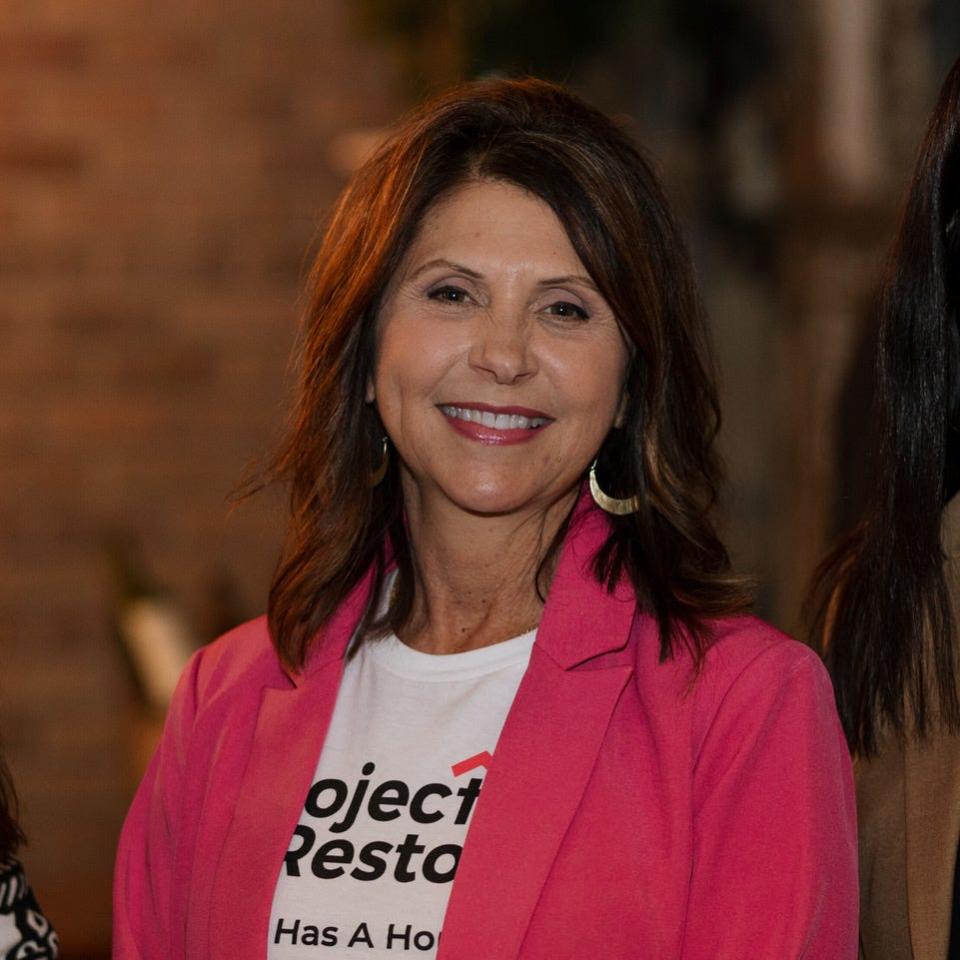This Topeka-based nonprofit helps trafficking victims recover and learn life skills
Just as human trafficking occurs outside of the public eye, recovery from such exploitation is taking place in Topeka, just out of sight.
Project 2 Restore’s restoration house, a long-term residential program for victims of commercial exploitation, has operated at an undisclosed location in the Topeka area since February 2022.
Since that time, Project 2 Restore has hosted three or four women at a time who seek safety and security from exploitation.
January observations of National Human Trafficking Month shed light on the need for such programs as Project 2 Restore. While statistics vary, a study from the U.S. Dept of Health and Human Services estimated between 240,000 and 325,000 are involved in sex trade in the country.
According to local law enforcement and social services providers, the problem exists in our backyard.

Project 2 Restore helps women leave harmful relationships
The vision for Project 2 Restore was birthed when Topekan Angie Boles began volunteering at a small nonprofit organization that provided crisis intervention. It was then that she perceived a lack of services for survivors of commercial exploitation.
“My heart just broke for the women, and I began to look for ways to help,” Boles said. “They needed a safe place where they could stay long enough to receive the healing they needed.”
Boles and a small group of Topekans began to take steps to fill the gap. They sought to educate themselves on the issue of sex trafficking and brainstormed ways to help.
After years of development that included training and accreditation through the Institute of Shelter Care Mentorship, Project 2 Restore is helping women separate themselves from harmful relationships and environments, deal with traumatic experiences in their past and develop life and career skills to become independent.
“I put in my best efforts to heal by myself, but after 27 years, I realized that I, a weary traveler, was not meant to walk this road alone,” said one resident of Project 2 Restore.
The native of a southern state was put in touch with the Topeka program by an exit strategist who helped orchestrate a video interview with Project 2 Restore. Within seven days of meeting, she was transported to Kansas, where she became one of the Topeka program’s first residents.
“Each survivor comes with her own story, her own challenges, and her own hopes and dreams for the future,” said Boles, who serves as Project 2 Restore’s executive director. “Women who apply know that this is a long-term program. They know that healing is a process, and they know it’s going to take a long time. We are prepared to serve survivors for up to two years to go through the program, depending on their level of trauma, how long they were trafficked.
“They can leave at any time that they want to, but we encourage them to understand that this is a long process.”

Residents deal with trauma and learn life and work skills
At Project 2 Restore, each resident has a private bedroom and shares a bathroom with another person. The house has a large kitchen and formal dining room, as well as a classroom. A multipurpose room is used for exercise, group activities and relaxation.
“When women walk through the house, they are always amazed at what’s there for them,” Boles said. “We have a beautiful patio and a beautiful yard. There is plenty of space for the women to get the time that they need to be alone, but there is also that sense of community to interact with each other and with our staff and volunteers, who provide round-the-clock staff coverage.
“It's very important that they always feel safe. They love it and call it home for now.”
Boles emphasizes that helping women exit commercial exploitation involves helping them deal with trauma, as well as learning life and employability skills.
“Some of the women haven’t developed the life skills they need to live independently and care for themselves,” Boles said. “Many of them lack marketable job skills. Our goal would be to find out what their passion is. We can help equip them with the skills to pursue those passions. They need to feel like, when they leave, they can go out and get a job and have financial independence.”
Due to the need for separation from problematic relationships and setting, none of the women hosted at Project 2 Restore have been Kansans.
“Most of the women are fleeing unsafe contacts where they live currently,” Boles said. “For them to start fresh in a new community is super important. It allows them to feel safe. It allows them to create independence and to avoid getting pulled back into the structures that created their victimization.”
Project 2 Restore operates a form of reciprocation, Boles said — the Topeka facility serves women from other parts of the country, while Kansans seeking help find it outside the state. Boles said Project 2 Restore occasionally participates in helping local victims of sex trafficking find placement in similar programs in other states.
“For every available bed across the nation, there are 14 survivors who do not have a place to go,” Boles said.
The nonprofit Project 2 Restore relies entirely upon financial support from churches, organizations and individuals. The fact that the Topeka program doesn’t house local women creates a challenging dynamic when it comes to fundraising, Boles said.
“We have great support in the community,” Boles said. “But we face a couple of barriers to garnering local financial support. One, our occupancy is small. We only help a few women at a time. And two, the women we serve are not from our area.
"So, when businesses or organizations think about donating to impact their local community, we might not fit what they’re looking for. They might think giving to a school or program for youth will be more impactful.”
Boles said she isn't deterred by those dynamics and appreciates the donors who understand the unique role of Project 2 Restore. She said the organization enjoys working in tandem with the Topeka Rescue Mission and the YWCA, as well as government officials and law enforcement.
Shawnee County DA points to long-term recovery for victims
“When you identify a human trafficking operation and you go in and get the trafficker and are ready to prosecute them, you still have to provide for the survivors,” said Shawnee County District Attorney Mike Kagay. “There are not a lot of resources and infrastructure in place to provide for them. There’s a short-term phase that the victims go through, and then there’s a long-term recovery phase.
“When you have a victim of sexual assault, they have traumatic responses that are complex. When you have a victim of domestic violence, they have their own set of issues. When you have a victim of sex trafficking, you’re blending all those traumas together. They may have been abused sexually, emotionally and sometimes they’re forced to ingest drugs that control their behavior.
"So, there is a multilayered, complex set of issues. Project 2 Restore is providing that long-term rehabilitation, recovery, and reeducation.”
Boles said the Topeka restoration house is just one part of what Project 2 Restore does to fight the larger problem of human trafficking. She said she hopes Human Trafficking Awareness Month brings to light the scope and gravity of the issue.
Boles said the average age of when a victim is first trafficked is 12 years old. She said 40% of child sex trafficking victims are sold by a family member. She noted that just 1% of victims in the U.S. are identified.
“Awareness is part of what we do. We want to rally the community to know not just the part of the puzzle that we are, but to think about the larger issue of human trafficking,” Boles said. “That’s why we are so eager to work with the women’s organizations, the rescue mission, the district attorney and law enforcement. We all have to work together.”
This article originally appeared on Topeka Capital-Journal: Topeka-based nonprofit helps trafficking victims recover, learn skills

